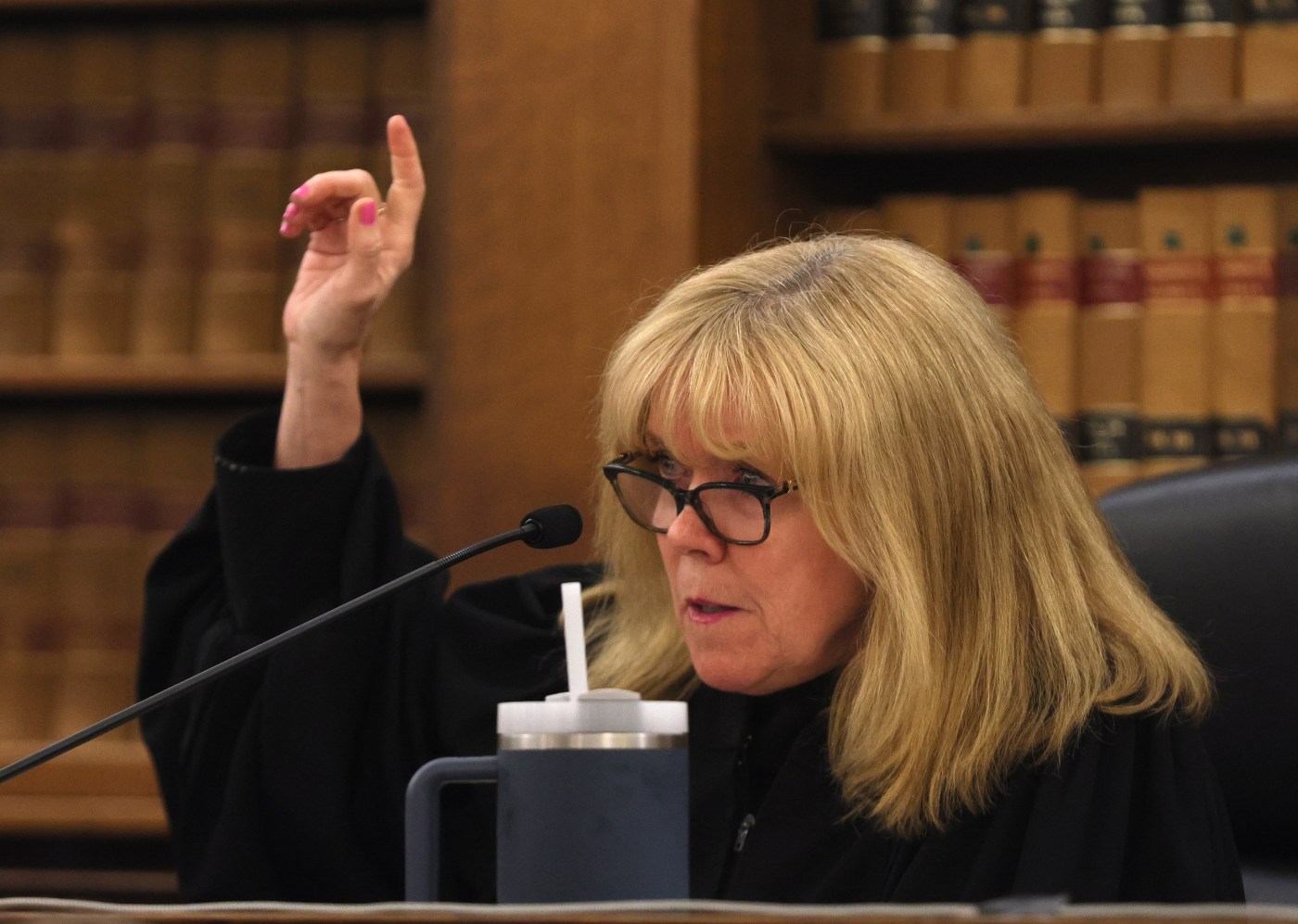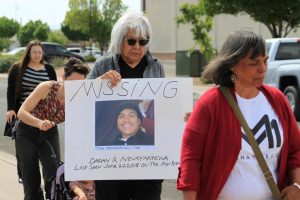
Karen Read judge Beverly Cannone sued for court buffer zone, stifling ‘passionate public debate’
Norfolk Superior Court Judge Beverly Cannone has been sued for reinstating a buffer zone, limiting Karen Read supporters from demonstrating outside the Dedham courthouse, during the contentious murder trial.
Four Massachusetts residents are behind a complaint filed in federal court arguing that their protests of Cannone’s handling of the Read case have been “peaceful, lawful, and entirely protected by the First Amendment.”
They are seeking to block enforcement of the buffer zone order and restore their right to protest.
Cannone approved a request last week from the prosecution that a buffer zone be reinstated for Read’s second murder trial, keeping supporters and opponents at least 200 feet away from the courthouse during the trial.
The Norfolk County judge extended the restricted area further for the retrial — which started Tuesday with two jurors being selected out of the first candidate pool — past where supporters often gathered during the first trial last year.
Plaintiffs Jason Grant, Allison Taggart, Lisa Peterson and Samantha Lyons also list the Massachusetts trial court, Massachusetts State Police, Dedham Police Department and Norfolk County District Attorney Michael Morrissey as defendants.
The complaint highlights an example of how Grant “peacefully demonstrated on the sidewalk next to the courthouse holding signs reading ‘Judge Bev is Conflicted’ and ‘Bev’s Court is a Clownshow.’”
“There were no disturbances, incidents, nor interference with any of the trials taking place,” the complaint states, “but Judge Cannone was apparently embarrassed and annoyed by people protesting against her.”
Cannone on Tuesday stressed to the first round of potential jurors that no matter how loud or persistent outside voices — whether the media, social media or physical protesters outside — this case is to be decided “based only upon the evidence in this courtroom and the law … it is just that simple and that important.”
“While public comment will likely continue, the rule of law will be upheld,” she said.
Well before last year’s trial, the blocks surrounding the Superior Court in Dedham developed a carnivalesque atmosphere. Read supporters would gather in droves, holding signs, chanting and making their presence known.
The buffer zone did not prevent a crowd from growing and supportive honking from passersby, which jurors could hear from the courtroom.
Special prosecutor Hank Brennan said the noises “could be influential, intimidating, concerning” and asked for buffer zone adjustments to prevent the jury from being influenced. Cannone approved the request, citing the possibility of Read’s “right to a fair trial” being “jeopardized” due to the hordes of supporters holding signs and chanting.
“The risk extends during trial,” the judge wrote, “where jurors and witnesses would have no choice but to be exposed daily to the messages and viewpoints of the protestors when entering and leaving the courthouse or sitting in the courtroom or jury room.”
The American Civil Liberties Union of Massachusetts argued last year ahead of the first trial that the prosecution’s request for a “whopping” 500-foot buffer zone and other restrictions would have an “impact on free speech, expression and assembly and therefore require very close constitutional scrutiny by this court.”
The Center for American Liberty and Randazza Legal Group are representing the plaintiffs on the complaint filed Tuesday. They argue the buffer zone “criminalizes speech based on content, location, and viewpoint, in violation of the First and Fourteenth Amendments.”
“Buffer zones that over-zealously prohibit all First Amendment activity are almost always unconstitutional and this one is no different,” said Mark Trammell, executive director of the Center for American Liberty. “The Karen Read trial continues to inspire passionate public debate—and citizens must be allowed to protest peacefully outside their own courthouse.”


